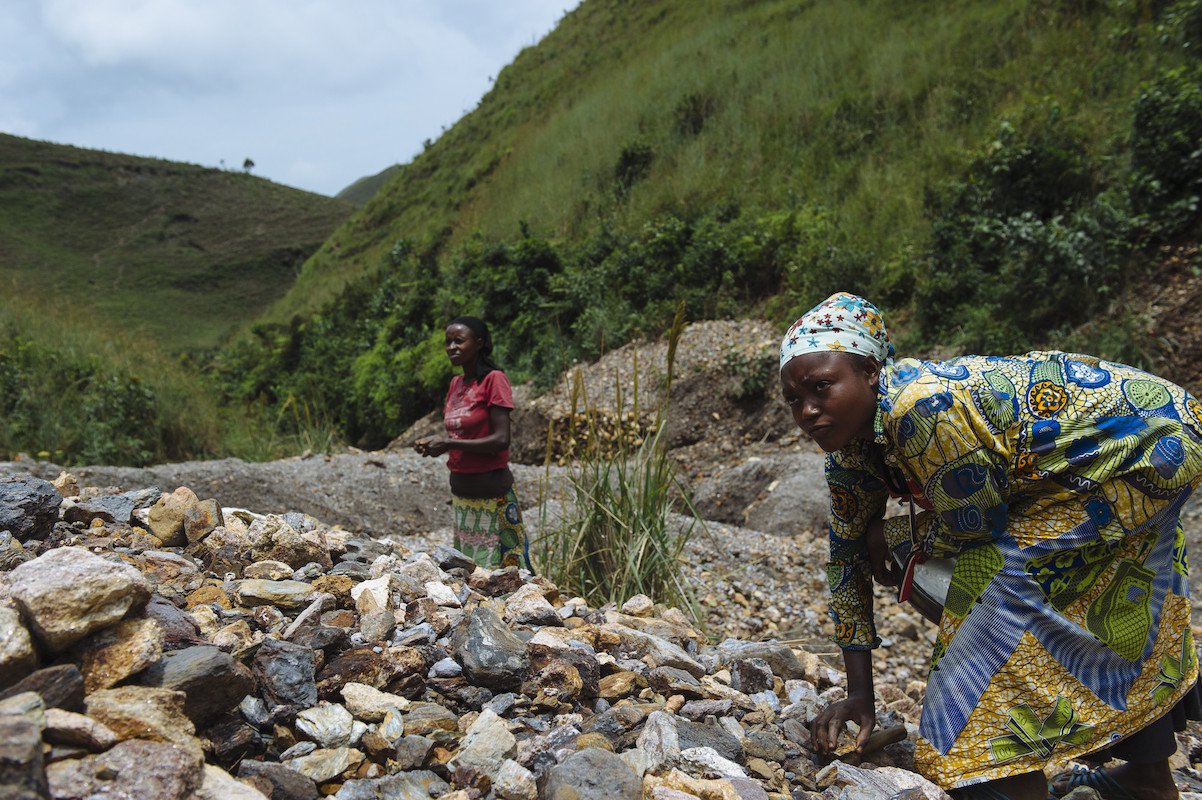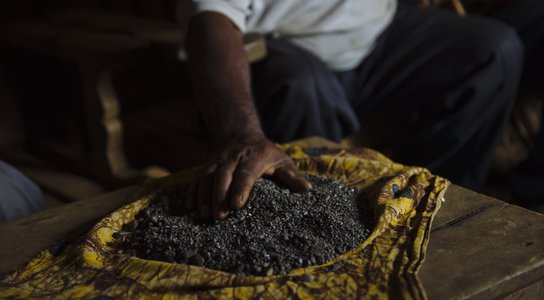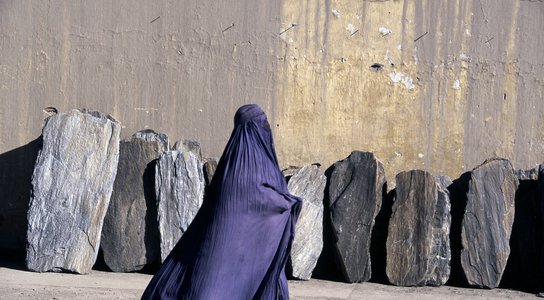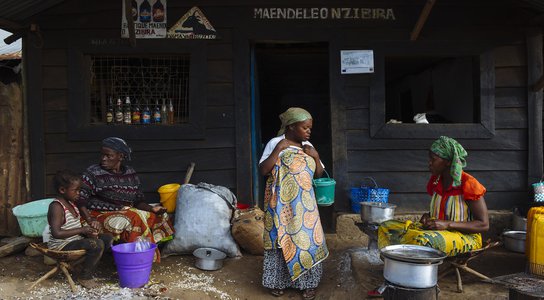Who benefits when a mining boom comes to town? The global rush to extract precious resources from the ground has brought both conflict and opportunity to the communities where it has taken root, but the costs and benefits of this billion-dollar industry are rarely evenly distributed.
This is particularly true when it comes to how it’s experienced by men and women. Understanding how the mining industry affects both men and women differently is crucial for the industry to both ensure that the rights of those at the bottom of the supply chain are respected, and to realise the potential of mining to bring growth and new opportunities to these communities.
Investment and revenues from mining operations can be huge, and can provide much-needed jobs and infrastructure in the communities where extraction takes place. But our investigations have exposed how the corrupt mismanagement of the enormous mineral wealth of countries like Afghanistan and the Democratic Republic of Congo has squandered opportunities for development, instead shoring up corrupt elites, far-flung businesses, and driving armed conflict – the impacts of which can be devastating for women and girls.
Conflict and corruption
We have long reported on the close links between conflict and the mining industry, exposing how the lapis lazuli trade in Afghanistan funds the Taliban and other armed groups, and how mining for precious minerals in the Democratic Republic of Congo has fuelled long-lasting conflicts in the country. When struggles for control over mineral wealth turn violent, women suffer disproportionately from both direct violence and the indirect fallout of the breakdown of order. Globally, sexual violence against women is deployed as a weapon of war with alarming frequency, while the weakening of the rule of law disrupts the ability of the state to provide basic services such as health and education.
It’s not just in times of conflict that extraction provokes gender-specific harms. Corrupt mismanagement of mineral wealth siphons much-needed revenue away from local areas (like the diversion of millions of dollars from mining deals in the Democratic Republic of Congo to shady offshore accounts), where it should be funding services and infrastructure. Since it’s often women and girls who are squeezed out of education and other opportunities when resources are scarce, this lack of investment is particularly unjust, blocking their routes out of poverty.
Unequal opportunities
Even when industry does bring benefits like jobs and infrastructure, these aren’t shared equally between men and women. As a 2009 World Bank study found, it’s usually men who benefit from new opportunities, reinforcing existing inequalities in the share of income, resources and power in families and the wider community.

Women search for cassiterite at a mining site in South Kivu, DRC. Women often work at the margins of the artisanal mining sector. Photo credit: Phil Moore.
That’s not to say that women are entirely left out of employment in the sector – while social norms mean that women are unlikely to be directly employed in mines, they may find work in the service sector that caters to the industry. They may also work unofficially on the margins, doing dangerous work for minimal reward, especially in areas where small-scale artisanal mining is prevalent. The impact on women’s employment and income is not clear-cut, but an awareness that industry doesn’t create equal opportunities for all is vital in considering its impact on communities.
Men have most access to the benefits, which consist primarily of employment and income, while women and the families they care for are more vulnerable to the risks created. - World Bank, 2009
Environmental and health costs
Mining and other forms of extraction can be a dirty business. Local water supplies reduced by overuse, or contaminated by the toxic chemicals used to extract minerals, have health impacts on those who use them. More time spent finding clean water sources for drinking, cooking and cleaning means less time available for paid work and education.
Similarly, when agricultural land is taken up by mining operations, there is further to go to cultivate and harvest food for the family. In many areas it’s women who undertake these domestic and agricultural activities, and who once again lose out on opportunities for financial independence and empowerment.
Reaping the benefits
Despite the challenges, the extractives industry doesn’t have to be synonymous with violence and inequality. The impacts of the industry are complex and far-reaching, and there is evidence to suggest that when it’s well-managed, the presence of extractive industries can improve outcomes for women in meaningful ways.
Some studies of mining across Africa have shown that industrial operations can improve women’s access to healthcare, promote empowerment and independence through providing new opportunities to earn a living, and reducing tolerance of domestic violence. However, the impacts will differ across contexts and policy responses must be sensitive to this: in particular, the small scale, artisanal mining that is prevalent in many areas that Global Witness works can pose unique risks to women.
Read stories of women in the artisanal mining sector in DRC
There’s still much to be done to achieve women’s equality and empowerment all over the world. No one industry or set of policies can take on the challenge alone, but responsible, transparent industry that’s sensitive to its particular social, economic and environmental impacts on women and works to mitigate these has an important part to play. Such behaviour is good for development, good for business, and above all a fundamental step towards achieving full human rights and gender justice.
You might also like
-
Mining for our Minerals
Meet the men and women who work in the Congolese mines to supply international companies’ insatiable demand for tin, tungsten, tantalum and gold.
-
Briefing Women’s rights and extractive sector abuses in Afghanistan
Policy recommendations to reduce abuses in the mining, oil and gas sectors, and empower women in Afghanistan
-
Blog post Extracting equality: gender and the African mining industry
The African continent is rich in natural resources, like oil, gas and minerals, but what does the presence of extractive industries like mining mean for women? Read our blog to find out more.